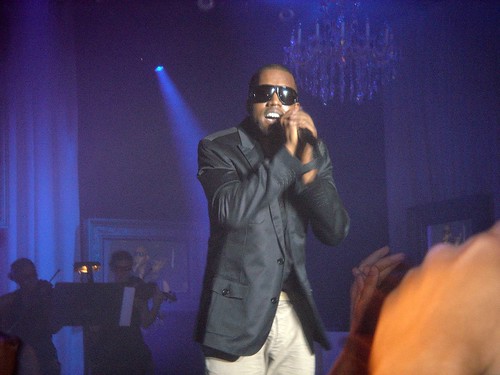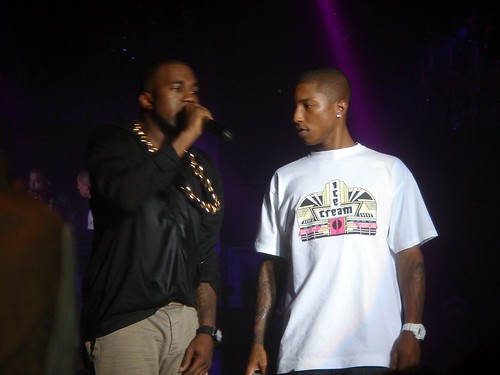JLA: Crisis Times Five (#28-31)
This storyline works in a similar way as a lot of the other big, multi-part arcs that Morrison has done, piling crisis on crisis, swamping the JLA with the sheer amount of things they've got to deal with. As usual, some of them are traditional superhero stuff while some are crazy cosmic things. Crisis Times Five encapsulates a lot of what's good about Morrison's run, but it also feels a bit conventional. Of course, reading the Mark Waid issues surrounding it show that Morrison's conventional writing still trumps nearly anything else out there.
There are two really fantastic pieces of this storyline. The first is Zauriel and old Green Lantern's trip to heaven to try to wake the Spectre. Here we get a great Morrison concept, the idea that the Spectre has been imprisoned by planting a civilization on him. So, waking the Spectre to save Earth would mean destroying an entire world. It's a clear precursor of stuff that Morrison deals with in The Filth, the idea that smaller microbial worlds are as equally valid as the one we think is real. As above, so below was the big thing from that series, and this civilizatiion on the Spectre parallels the way our own bodies house billions of microbes.
In one of the most stunning pages in any Morrison work, we see Zauriel watch the growth and decline of this entire world over the course of billions of years, experienced in an hour. I love the idea that they move so slow they seem like statues to the people in the world. It's simple, yet mindblowing.
The other really cool thing here is Green Lantern and Captain Marvel's trip to the fifth dimension. In looking at The Invisibles, I was struggling to come up with a way to comprehend the idea of 4-D time as described in the series. Eventually, I realized that people looking at our world from a 4-D perspective would see it much like a comic book, each seperate moment frozen in time, the people involved unaware of their future even though we could see it by just flipping forward a few pages. So, all of time always exists, it's all about which piece it you choose to experience at any moment.
What Morrison does here is take that metaphor but put it to work within the comic book world. In the fifth dimension, Green Lantern becomes a 2-D figure with no depth, just a piece of paper. All the stuff there is great, Captain Marvel's goofiness maximized by the retro coloring and Green Lantern still in awe of the crazy stuff he gets to experience. For Morrison, the fifth dimension is one of pure imagination, by writing something Captain Marvel is able to make it real. Morrison's a big proponent of chaos magic and sigils, the idea that concentrated thought can affect the nature of reality. What Marvel does by skywriting the two colors together is essentially cast a sigil that quickly becomes reality.
The storyline that isn't particularly successful here is Triumph's attempt to defeat the JLA. His elaborate masterplan is too close to what Prometheus and the Keymaker already did and there's nothing particularly interesting about his struggle. The stuff with the two genies is decent, but they end up feeling more like just really big bad guys than a particularly exceptional fifth dimension threat.
That said, I d enjoy the stuff with Huntress and Wildcat fighting them on the streets. I read this trade a few years ago, without reading the rest of the series, and I remember being annoyed by the sudden appearance of these random characters like Wildcat, on top of the already huge cast. However, reading the series through, you really get to know all the main cast, and the guest appearance of Wildcat serves a crucial role in the ongoing evolution of Huntress as a JLA member. Her arc has been the most interesting character development during Grant's run. She's still not sure why she's on the team, but always seems to wind up serving some crucial role in the JLA victory. By this point, and in the subsequent Mark Waid issues, she seems to have realized that her role is to be the ordinary citizen, the voice of humanity on the JLA, and she serves that purpose well.
Back when I started doing these JLA reviews, I talked about the fact that the book was about icons, so the stories couldn't be traditional narratives, they had to play more on the characters as mythology, gods. That's why I think Morrison chose to bring in the secondary cast, people who didn't have huge powers and were actually vulnerable to attack. For one thing, they can actually be in danger, as Steel is in this storyline, but they also have more doubts about the JLA's purpose. All of the secondary seven are uncertain why they're there, but gradually proving themselves through battle. So, there is a clear character progression even though each of these arcs is essentially standalone. I'd previous read the series in just random chunks, but it's definitely something that should be read in order.
Crisis Times Five is perhaps the representative Morrison JLA arc, containing the crazy concepts, subtle character development and innovative use of DC history that make it great and the weaknesses as well, too many villains who seemingly have the ultimate key to the JLA and a repetitive structure of threat appears, creates chaos then gets stopped. But, the flaws don't prevent this from being a really fun arc that towers over the other writers working on JLA. To think that something full of this many crazy concepts could be the top selling comic shows that in at least one medium, you can still do really great, innovative work in a mainstream context.
Related Posts
JLA: Return of the Conqueror (#22-23) (8/10/2006)
JLA: One Million (8/19/2006)
JLA: Executive Action (#24-26) (8/24/2006)






